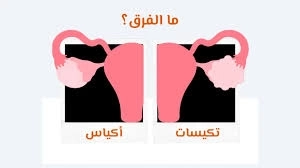
PCOS vs. Pelvic Adhesions – Dr. Sahar El-Morshedy Explains the Difference
Published on: 2025-06-23 | Written by: Dr. Sahar AlMarshady Consultant Obstetrician
Dr. Sahar El-Morshedy, Specialist in Obstetrics, Gynecology, and Infertility, explains that both polycystic ovary syndrome (PCOS) and pelvic adhesions are common causes of delayed pregnancy. While some symptoms may seem similar, each condition has different underlying causes, diagnostic approaches, and treatment options.
In this article, Dr. Sahar El-Morshedy highlights the key differences between the two conditions and how each is treated effectively.
First: What Is Polycystic Ovary Syndrome (PCOS)?
PCOS is a hormonal disorder that affects ovulation. It is characterized by multiple small cysts on the ovaries and can lead to irregular periods and fertility issues.
Common symptoms include:
-
Irregular or absent menstrual cycles
-
Weight gain and difficulty losing weight
-
Excess hair growth in unwanted areas
-
Acne or oily skin
-
Difficulty conceiving
According to Dr. Sahar El-Morshedy, PCOS is very common among women of reproductive age and requires accurate diagnosis and a personalized treatment plan.
Second: What Are Pelvic or Uterine Adhesions?
Adhesions are bands of scar tissue that form inside the uterus or pelvis, often caused by past infections, surgeries (like C-sections or D&C procedures), or pelvic inflammatory disease.
Common symptoms include:
-
Chronic pelvic pain
-
Light or absent menstruation
-
Difficulty getting pregnant
-
Pain during intercourse
Dr. Sahar El-Morshedy explains that these adhesions can prevent the egg and sperm from meeting or stop the embryo from implanting in the uterus.
Key Differences Between PCOS and Adhesions
| Factor | PCOS | Pelvic Adhesions |
|---|---|---|
| Primary cause | Hormonal imbalance | Inflammation or previous surgeries |
| Menstrual cycle effect | Often irregular | May be light or absent |
| Diagnosis | Ultrasound & hormone tests | Hysterosalpingography or laparoscopy |
| Treatment | Medication or simple procedures | Often requires surgical intervention |
How Are These Conditions Treated?
PCOS Treatment
Dr. Sahar El-Morshedy recommends a step-by-step approach:
-
Weight management and lifestyle changes
-
Medications to regulate periods
-
Ovulation-stimulating drugs if trying to conceive
-
Assisted reproductive techniques like IUI or IVF if needed
Adhesions Treatment
Adhesions are typically treated with hysteroscopic or laparoscopic surgery to restore the normal shape and function of the uterus and fallopian tubes.
Dr. Sahar El-Morshedy emphasizes that early intervention significantly improves fertility outcomes.
Conclusion
Although PCOS and pelvic adhesions can both lead to infertility, they are fundamentally different conditions in terms of cause and treatment. Dr. Sahar El-Morshedy advises women with menstrual irregularities or delayed conception to seek medical advice early. A timely diagnosis ensures a tailored and effective treatment plan for each case.

